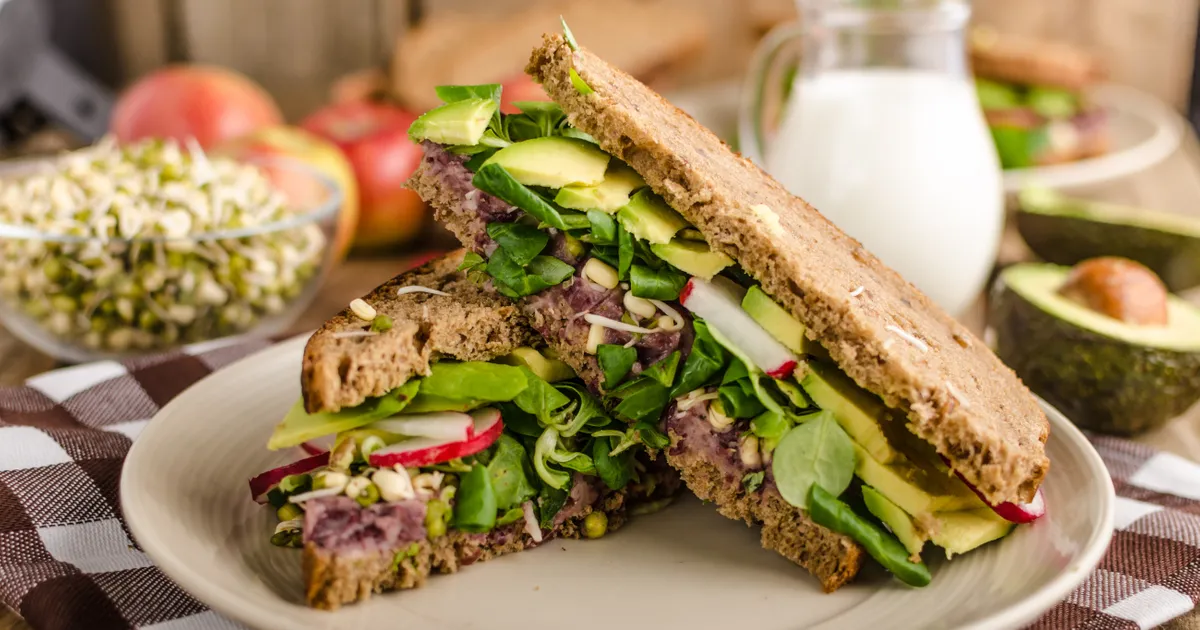People talk about “clean eating” so often, the phrase begins to lose meaning. When it isn’t being used as an umbrella term to sell the latest food trends, it’s being treated as a buzzword for fad diets.
So, it might surprise you to learn that clean eating is an actual diet philosophy with actual guidelines. Let’s simplify what clean eating is, and how you can benefit from it.
 Shutterstock: Stepanek Photography
Shutterstock: Stepanek PhotographyClean Eating, Simplified
In a nutshell, clean eating means consuming foods in their natural state. This means avoiding foods that have been heavily processed with added fat, sugar, chemicals, preservatives, sodium, additives, and dyes. 1
Natural foods contain all of the proteins, fats, vitamins, and minerals that have helped humankind thrive for centuries. These whole foods – like healthy proteins, fats, whole grains, fruits, and vegetables – are considered “clean” because they haven’t been processed at all.
On the other hand, processed foods – unhealthy fats and refined grains – are spiked with salt and sugar to make them more irresistible. They also tend to include chemicals and additives that our body doesn’t know how to flush out.
What To Avoid
While you don’t have to eliminate these foods from your diet altogether, it’s advised to cut down on the following processed options:
- Foods that contain white flour and sugar
- Processed meats (such as bacon, sausage, and cold cuts)
- Sodas and fruit juices that have added sugar
- Artificial foods (such as cheese slices and pizza pockets)
- Diet foods with chemical additives or preservatives
- Artificial sweeteners
- Saturated fats and trans fats
- Alcohol
There are other examples, but they become more self-evident the longer you follow the clean-eating approach. And luckily, there are other pro tips to help you distinguish natural, whole foods from the suspicious stuff.
Nutrition Labels Are Your Friends
Not all processed foods are problematic. For example, foods that are chopped, blended, or cooked are technically processed as well, which can create a blurry boundary when you hit the grocery aisles.
For example, is retail hummus any more processed than homemade hummus? This is when food labels become your allies. If you spot any ingredients listed that you cannot find in nature (let alone pronunciate), the company responsible has likely added unnatural additives or chemicals.
Many brands are trying to ride on the coattails of the clean-eating movement, misusing terms like “whole grain” in an effort to boost their sales. Always read a product’s nutritional information to get the full picture.
Guidelines For Buying Fresh
The same careful approach must be used with regards to meat and poultry. Look for butchers or vendors who sell antibiotic-free meat that has been responsibly sourced.
Organic certifications are assurances that the meat you’re consuming isn’t laced with antibiotics, and therefore won’t reduce your antibiotic resistance. 2 Likewise, responsibly-sourced meats (like “grass-fed beef” and “wild-caught salmon”) promise that these animals attained all of their nutrients in the wild. 3
Organic labels also help you steer clear of fertilizers and pesticides in your produce. Nearly a third of the produce tested by the United States Department of Agriculture contains residues of various pesticides. 4 These chemicals, which boost production and help keep insects away from crops, have been linked to Parkinson’s disease, respiratory problems, an increased risk of cancers, and Alzheimer’s disease.
The Benefits Of Clean Eating
Incorporating all of these guidelines into your diet may seem daunting, but the health benefits of clean eating definitely warrant a few extra minutes in the supermarket.
Choosing “clean” foods will boost your immunity and digestive system, while lowering your risk of cancer, diabetes, and heart disease. It will also strengthen your muscles and bones, improve your skin, eyes, and teeth, and help you maintain a healthy weight. 5
Positive changes to your physical health will naturally result in an elevated mood, more energy, and better sleep. Isn’t that worth reading a few additional labels while buying groceries?
An Affordable Change
After all of the buzzwords and gimmicks, the truth about clean eating is simple: embrace whole foods in their natural state, and you’ll improve your health.
Surprisingly, this diet can even save you money on your groceries. Cutting down on processed foods will take a serious chunk out of your shopping bill. Plus, by purchasing produce in season, you’ll naturally gobble up sale items that stores buy in excess. 6
There are many helpful tips online to help you trim your grocery bill. Be sure to tap into the clean-eating community and discover ways to make this diet as healthy on your wallet as it is on your lifestyle!


